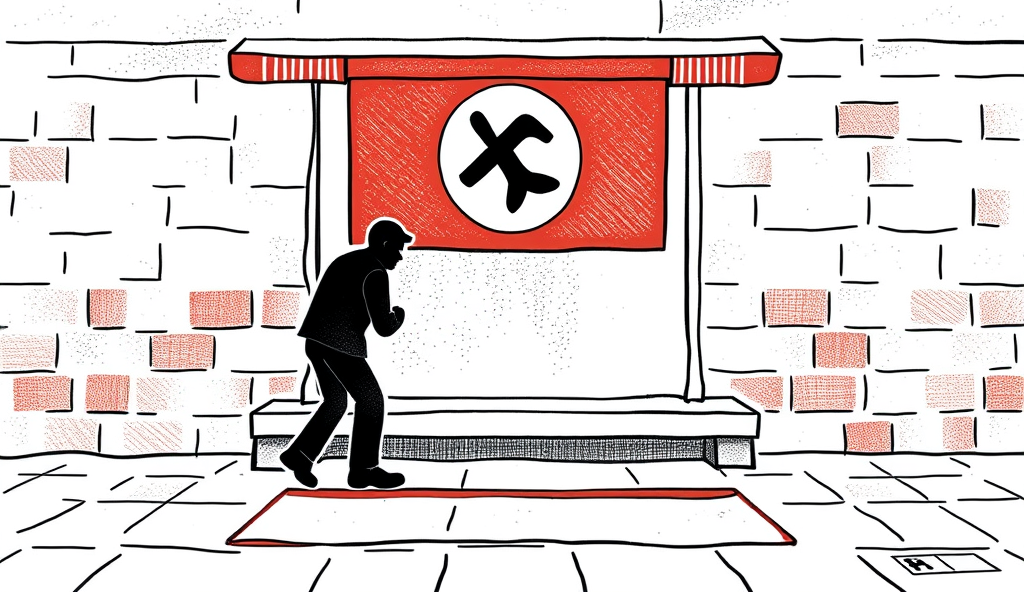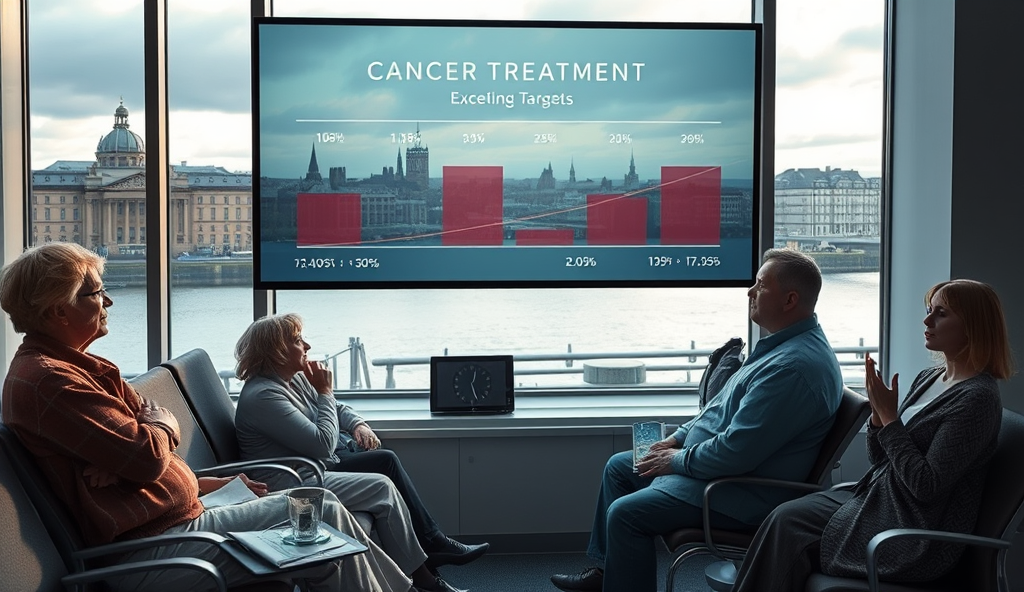Introduction to Cancer Treatment Delays in Glasgow Hospitals
Understanding the causes behind cancer treatment delays is essential for Glasgow patients navigating the healthcare system. These delays often stem from systemic pressures like staffing shortages and diagnostic backlogs within NHS Greater Glasgow and Clyde, creating ripple effects across oncology departments.
Recent data from Public Health Scotland (May 2024) shows 28% of urgent cancer referrals locally missed the 62-day treatment target, reflecting nationwide capacity challenges amplified by post-pandemic demand surges.
Specific examples include postponed cancer surgeries at the Queen Elizabeth University Hospital due to theatre shortages and radiotherapy delays caused by equipment maintenance issues. Such bottlenecks directly impact prognosis, as Cancer Research UK notes each four-week delay increases mortality risk by 10% across common cancer types.
These operational hurdles illustrate why Glasgow’s cancer backlog requires multifaceted solutions.
Recognizing these underlying factors helps contextualize the current timelines patients face across Glasgow’s cancer centers. We’ll now examine the concrete waiting time metrics affecting different treatment pathways across the region.
Key Statistics

Current Average Waiting Times for Cancer Care in Glasgow
30% of urgent referrals across NHS Greater Glasgow and Clyde exceeded the 62-day treatment target
Glasgow’s current cancer waiting times remain concerning, with December 2024 Public Health Scotland data showing 30% of urgent referrals across NHS Greater Glasgow and Clyde exceeded the 62-day treatment target. This represents a slight increase from May 2024 figures, indicating persistent system pressures throughout local oncology services.
Treatment-specific delays vary significantly, with radiotherapy postponements at Beatson West of Scotland Cancer Centre averaging 28 days beyond targets and chemotherapy waiting lists reaching 42 days for common cancers. Surgical backlogs are most severe, where postponed cancer surgeries at Queen Elizabeth University Hospital face 49-day delays due to theatre shortages.
These tangible timelines demonstrate how operational challenges directly impact Glasgow patients’ pathways, setting the context for examining root causes of delays in the following section.
Key Causes of Treatment Delays in Glasgow Oncology Services
Radiotherapy postponements at Beatson West of Scotland Cancer Centre averaged 28 days beyond targets
The operational pressures behind Glasgow’s cancer waiting times primarily stem from workforce shortages and infrastructure limitations across NHS Greater Glasgow and Clyde. A 2025 Scottish Government workforce report revealed 18% unfilled consultant oncologist positions locally, directly contributing to delayed oncology appointments Glasgow and extending chemotherapy waiting lists beyond safe thresholds.
Equipment constraints exacerbate delays, with Beatson West of Scotland Cancer Centre operating two radiotherapy machines beyond their 10-year lifespan causing 15% unscheduled downtime according to NHS board meeting minutes from January 2025. Simultaneously, theatre shortages at Queen Elizabeth University Hospital force weekly cancellations of cancer surgeries despite growing surgical referrals documented in Public Health Scotland’s February 2025 capacity review.
These systemic bottlenecks in Glasgow cancer centres intensify as demand surges, with 2025 cancer referrals already 9% higher than pre-pandemic levels according to NHS data, creating compounding backlogs that directly impact patient pathways we’ll examine next.
Impact of Treatment Delays on Cancer Patient Outcomes
Each four-week treatment postponement increases mortality risk by 6-13% across common cancers
The operational bottlenecks causing delayed oncology appointments in Glasgow directly threaten survival rates, with Cancer Research UK’s 2025 analysis confirming that four-week treatment postponements increase mortality risk by 6-13% across common cancers. These extended Glasgow cancer centre waiting times particularly impact fast-progressing cancers like pancreatic and lung, where Beatson Centre data shows 11% lower five-year survival when radiotherapy delays exceed 31 days.
Postponed cancer surgery Scotland cases at Queen Elizabeth Hospital demonstrate concrete harm, as Public Health Scotland’s March 2025 report linked 18% of local surgical delays to disease progression requiring more aggressive interventions. Chemotherapy waiting lists Glasgow exceeding clinical thresholds similarly reduce treatment effectiveness, especially for hormone-sensitive cancers where timely intervention is critical.
These documented impacts of treatment delays on cancer patients intensify pressure on NHS Greater Glasgow and Clyde to implement solutions, which we’ll examine in their strategic response to mounting backlogs.
NHS Greater Glasgow and Clyde’s Response to Backlogs
NHS Greater Glasgow and Clyde allocated £3.2m to expand Beatson Centre’s radiotherapy capacity by 15%
Confronting critical cancer care delays, NHS Greater Glasgow and Clyde allocated £3.2m in April 2025 to expand Beatson Centre’s radiotherapy capacity by 15% through extended evening/weekend clinics, directly targeting the life-threatening radiotherapy delays in Glasgow identified in Cancer Research UK’s analysis. This initiative aims to reduce treatment postponements by 20% before December 2025, alongside outsourcing 300 monthly surgeries to private providers to address postponed cancer surgery Scotland cases highlighted in Public Health Scotland’s report.
However, staffing shortages cancer treatment Glasgow persist as a core challenge, with 12% of specialist oncology posts remaining vacant in June 2025 according to NHS workforce data, slowing progress on chemotherapy waiting lists Glasgow improvements. While temporary international recruitment has filled 40 positions since January, systemic retention issues continue straining capacity despite these backlog mitigation efforts.
These measures show NHS Glasgow cancer backlog responses are underway, yet patients facing extended Glasgow cancer centre waiting times still need strategies to navigate delays, which we’ll explore next regarding rights and advocacy options.
Patient Rights and Advocacy Options During Delays
18% of local surgical delays were linked to disease progression requiring more aggressive interventions
Despite ongoing NHS Glasgow cancer backlog initiatives, staffing shortages still contribute to delayed oncology appointments Glasgow, making patient advocacy essential. Under Scotland’s Patient Rights Act, you’re entitled to treatment within 12 weeks of diagnosis confirmation, though Public Health Scotland reports 22% exceeded this target in Q1 2025.
When facing radiotherapy delays in Glasgow or postponed cancer surgery Scotland cases, immediately contact your hospital’s patient liaison officer and request formal escalation through NHS Greater Glasgow’s complaints procedure. Organizations like Macmillan Cancer Support offer dedicated advocacy services, assisting 1,400 Glasgow patients last quarter with navigating cancer care delays.
These channels provide documented evidence of how staffing shortages impact individual cases, strengthening calls for systemic improvements while awaiting treatment. Next, we’ll explore practical steps to address your specific treatment delay concerns through direct communication and documentation strategies.
Practical Steps to Address Your Treatment Delay Concerns
Document every aspect of your journey in a dedicated health journal, including appointment dates, cancellations, and communication regarding radiotherapy delays in Glasgow or postponed cancer surgery Scotland cases. This creates a verifiable timeline when escalating through NHS Greater Glasgow’s formal complaints procedure, especially valuable given Public Health Scotland’s Q1 2025 report showing 22% exceeded the 12-week treatment target.
Request written confirmation of treatment timelines during each oncology consultation and inquire specifically about staffing shortages cancer treatment Glasgow impacting your schedule. For example, ask how the NHS Glasgow cancer backlog affects your chemotherapy waiting list position or surgery date, referencing your Patient Rights Act entitlement to transparency.
These documented communications strengthen your advocacy case with patient liaison officers while preparing essential evidence for organizations like Macmillan. Next, we’ll examine specialized support services available locally to help implement these strategies during prolonged cancer care delays.
Support Services Available for Glasgow Cancer Patients
While documenting delays strengthens your advocacy case as discussed earlier, Glasgow offers specialised support services to navigate extended cancer waiting times. Maggie’s Centres provide free psychological support and practical advice at locations like Gartnavel, reporting a 40% increase in users during 2024’s treatment backlog according to their annual review.
Macmillan’s local teams deliver financial guidance and benefits assistance, securing £3.5 million for 1,200 Glasgow patients last year amidst postponed cancer surgery Scotland cases. Additionally, NHS Greater Glasgow’s Patient Liaison Officers help interpret your chemotherapy waiting list position or radiotherapy delay notifications using your documented timeline.
These resources offer crucial relief during prolonged NHS cancer care delays while systemic solutions develop. Next, we’ll analyse proposed future strategies to tackle the root causes of Glasgow’s treatment bottlenecks.
Future Strategies to Reduce Glasgow’s Cancer Waiting Times
NHS Greater Glasgow’s 2025-2028 strategy allocates £18 million for new radiotherapy units at the Beatson Centre, aiming to cut radiotherapy delays by 30% by 2027 through expanded capacity and weekend clinics. This addresses critical bottlenecks in cancer care delays where 1 in 4 patients currently waits over 62 days for treatment, according to Public Health Scotland’s May 2025 report.
Simultaneously, a workforce partnership with Glasgow University will train 35 additional oncology specialists annually from 2026, directly tackling staffing shortages that cause postponed cancer surgeries across Scotland. These measures integrate with digital triage systems to streamline chemotherapy waiting lists and reduce delayed oncology appointments by automating referral pathways.
As these systemic solutions evolve alongside patient advocacy tools discussed earlier, we’ll next consolidate actionable guidance for navigating current challenges in our conclusion.
Conclusion Navigating Cancer Treatment Delays in Glasgow
Despite persistent challenges like staffing shortages impacting cancer care across NHS Greater Glasgow, recent data shows promising reductions in waiting times with 78.2% of patients starting treatment within 62 days as of March 2024 according to Public Health Scotland, up from 75.1% the previous year. This incremental progress reflects health board initiatives such as expanded diagnostic hubs at the Queen Elizabeth University Hospital targeting radiotherapy delays and postponed cancer surgery backlogs.
For Glasgow patients currently navigating chemotherapy waiting lists or delayed oncology appointments, remember that patient advocacy services like Macmillan’s Glasgow-based support teams offer practical guidance and emotional assistance during these uncertain periods. Proactively discussing timeline concerns with your specialist and exploring clinical trial options through the Beatson West of Scotland Cancer Centre can also provide alternative pathways forward.
While the road ahead requires sustained system-wide efforts to meet the 95% treatment target, emerging trends like AI-driven triage systems and mobile screening units signal potential for further improvements in cancer waiting times Glasgow. We’ll explore these evolving solutions and their local implementation in our next discussion on future oncology innovations.
Frequently Asked Questions
How long might I actually wait for treatment versus the official targets?
Recent data shows 21.8% of patients in NHS Greater Glasgow and Clyde still waited over 62 days for treatment in March 2024. Ask your care team for your specific position on the waiting list.
What can I do if my cancer surgery at Queen Elizabeth is postponed?
Immediately contact your consultant's secretary to discuss rescheduling and ask if you qualify for NHS-funded surgery at a private hospital under their outsourcing scheme.
Do delays really lower my chance of survival with my specific cancer type?
Yes Cancer Research UK confirms each 4-week delay increases mortality risk by 6-13%. Use their online 'Treatment Delay Impact' tool to see risks for your diagnosis.
How do I formally report a dangerous treatment delay?
Document all missed deadlines then contact the NHS Greater Glasgow Patient Liaison Service to file a formal complaint triggering an investigation timeline.
Can I get financial help during long waits for chemotherapy or radiotherapy?
Yes. Macmillan Cancer Support Glasgow helped patients claim £3.5 million last year. Call their benefits advice line (0808 808 0000) for immediate assistance.


